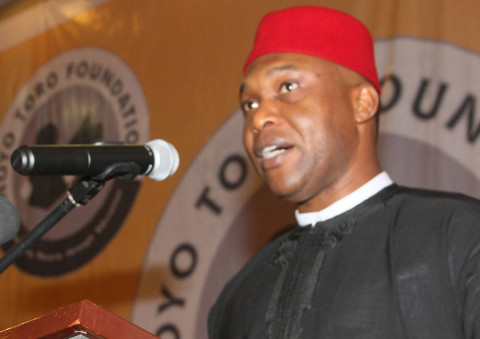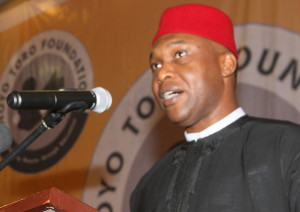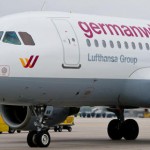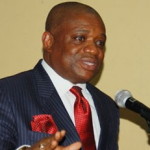Nigerian Airports: Terminals of Discomfort
Articles/Opinion, Latest Headlines Saturday, September 20th, 2014
The buzzword among Nigerian air travellers these days is “standard”. Perhaps the reality of the International Air Transport Association (IATA) report that described African airports as among the costliest in the world besides offering shoddy service has begun to concentrate minds. An airport can easily be rated by the level of comfort, convenience and security enjoyable at the airport’s lounge. Recently, a facebook page credited to the Minister for Aviation, Mr Osita Chidoka, posed a pertinent question about what Nigerians would expect of the Minister in his first three months in office. Of the over 900 responses a sizeable number which, no doubt, are frequent air travellers repeatedly called on the Honourable Minister to urgently fix all broken down facilities in the arrival and departure halls of our airports with particular reference to the air-conditioners, the escalators, and the toilets.
The condition of airport terminal facilities is critical to the rating of airport performance both locally, and globally. According to forbes.com, the annual Skytrax survey for World Airports Awards takes into account the full experience across an entire airport’s footprints. As many frequent travellers know, the experience from one terminal can be drastically different from another terminal of same airport. Skytrax criteria therefore dive deeper into the airport terminal experience to include security, staff, and cleanliness among a wide spectrum of indicators. And so for the 2012 Worst Airports in Africa, Murtala Mohammed International Airport topped the list with Nnamdi Azikiwe International Airport maintaining 5th position. The year 2013 was worse. According to travel.cnn.com, the worst airports are known for their dusty lounges, smelly bathrooms, filthy toilets, long queues, and rude staff. The story did not change in the 2014 awards held at Passenger Terminal EXPO in Barcelona Spain as no Nigerian airport made it to the first ten airports in Africa.
Regarding the poor air conditioning system at the lounges of most of our airports, one of the facebook respondents said; “Get the air conditioner at the terminals working as soon as possible. It is embarrassing to step out of a cool aircraft and be immediately ushered into a microwave oven. That is the situation for now especially at the Nnamdi Azikiwe International Airport.” Another added; “Let the air conditioner at Murtala Mohammed International Airport terminal work. That speaks volume about Nigeria as that is the first contact point with Nigeria by all foreigners.”
The recurring mention of disabled and malfunctioning lounge facilities here seems to question the thoroughness of the airport infrastructure remodelling project started by former Minister for Aviation, Princess Stella Oduah – a project acclaimed to have turned around the aviation sector which for many years was almost comatose. With a masterplan for the remodelling of 22 airports across the country in an aerotropolis concept, aviation is said to have witnessed a massive infrastructure upgrade at par with international standards and in consonance with the transformation agenda of President Goodluck Jonathan.
By all standards, it appeared to be a commanding victory for the ministry and the administration because since 1979 when the Murtala Mohammed International Airport was built until 2010, the grotesque and obsolete look of Nigeria’s airport terminals was a source of discomfort and an issue for condescending remarks on Nigeria. As expected, the commencement of the remodelling project in late 2010 yielded positive results as a 2011 study; Airport Capacity Utilization: A Performance and Efficiency Appraisal, jointly conducted by Federal University of Technology Owerri and the University of Johannesburg, reports that a significant number of air travellers (41.95%) rated Lagos as a “four-star” international airport alongside Maiduguri Airport (48.51%). Nevertheless, one would have even expected the Lagos Airport to have enjoyed better rating since the survey was directly associated with the new MMA2 terminal. But it seems the poor condition of lounge facilities even then was appalling and as such unacceptable.
Besides faulty air conditioners, untidy toilet facilities, and broken down escalators, the beggarly posture of immigration officials is another source for concern for air travellers. On this note one facebook respondent noted that beyond the pettiness of these immigration officials is a nation whose image is gradually being eroded and battered by the selfish and insatiable longings of officials who statutorily should project its image considering the fact that the international airports are gateways where first impressions matter so much. Incidentally, the attitudes of the immigration officials have deteriorated to a brazen level where travellers’ papers are withheld until tips and kickbacks are offered. This is very disheartening to any air traveller.
The frustrating experience of having to sit in the departure halls of our airports for hours unending due to delayed, rescheduled or cancelled flights is another source of worry. Concerning this, one respondent suggested that aside from the legal provisions of the passenger bill of rights, airports authority should further stipulate stringent measures against airlines that cancel or reschedule flights without meeting the minimum 24 hours notice to travellers and without making alternative arrangement. It is common knowledge that Nigerian airlines do not see it as the passenger’s right to be updated about flight schedules and for that reason they prefer to keep them in the dark. It is internationally accepted for passengers to know whether or not they would travel at the scheduled time.
High air fares featured as another area Nigerians want the Minister to address urgently. Airlines seem to distribute among their passengers, by means of high air fares, the high operational cost they incur as a result of high cost of aviation fuel, taxes paid to government, and losses due to bad operations management practice. The high cost of aviation fuel, experts say, consumes about 40 per cent of airlines’ income. This makes the cost of operation high and creates excuses for airlines to sell tickets at outrageous rates. For example, one hour tickets on the average cost between $80 and $100 in other countries but sells for $200 (N32,000) in Nigeria and during market surge, an economy seat could sell for N45,000 (almost $300). Since income level is one of the determinants of choice of transport mode, nobody is expecting the Minister to make air travel affordable to low income earners, however, practical steps should be taken to break the monopoly airlines like Arik Air and Aero Contractors are enjoying, which to passengers is contributing significantly to price inflation.
Without mincing words, impressive terminal buildings, world class tarmacs, state-of-the-art navigational aids and so on are superstructures which can easily be seen from the outside and commended for their grandeur and aesthetic value. But it takes a regular traveller to assess the working condition of these facilities and possibly identify malfunctioning parts. Such is the situation at our airports; both domestic and international. The new terminal facilities are still being test-run, so to say and as expected, various degrees of faults and abnormalities are popping up. For example, the rains have exposed the poor drainage system at the Akanu Ibiam International Airport as travellers now have to wade through deep floods to get to the terminal buildings. These flaws need to be rectified to give the airports their true international shade and posture.
Airlines, if they choose, can reduce the long queues at their ticket stands in the terminal buildings. It is unimaginable the difficulty passengers pass through to buy flight tickets at these stands. In most cases prospective passengers take positions in long and confused queues obstructed by touts for long periods of time. According to the 2011 study mentioned above, early purchase of tickets often attracts some discount as it gives the carrier funds ahead of the contractual carriage and ample time to plan for the booked traffic. On the part of the passengers it gives them time to concentrate on other issues that might require attention. Incidentally, 79% of air travellers in Lagos purchase their tickets at the airport and that adds to time spent by airplanes at the airport. 10% purchase from Airline’s sales outlet in town, 7% from travel agencies and 4% online. Air travellers in Lagos appreciate the merits of purchasing tickets away from the airport as 13 % of them see the dearth of airline sales outlets in the town as a problem.
The Lagos Airport which is supposed to be the nation’s flagship was fashioned after the design of Schiphol Airport in Amsterdam. While Schiphol Airport has undergone series of changes in terms of structure, facilities, and even in space, the Lagos airport still remain a one-terminal airport instead of three terminals as proposed in the original design. The remodelling being done has not in any way put it at par with its counterparts across the globe. Even at that, good and contemporary operations management practice can establish efficiency and discipline within the one-terminal facility and make the airport stand out.
One cannot exhaust the anomalies bordering on ineffective terminal management put up by airport authorities and on shoddy customer service by airlines, but we must establish the fact that the market is taking note. Evidently, Skytrax survey data are collected from millions of air travellers around the globe. Mr Chidoka won a catalogue of laurels and left an enviable legacy as Chief Executive of the Federal Road Safety Corps (FRSC). Hard facts speak for him. As a man who appears to have a rendezvous with history, this new appointment as Minister for Aviation is another call for him to once again engrave his name in marble. On this note, therefore, his administrative blueprint should transcend physical face-lift and aesthetics at the airports and focus also on the intricate network of elements of air travel to promote effective airport terminal management. He must foster sound brand management practice: the model that would launch Nigerian airports into the realm of honour as regional best or at worst taking the lead in one of the categories within the wide spectrum of best practices.
Chigozie Chikere Member, The Chartered Institute of Logistics & Transport, CILT Nigeria Rector, Emdee Shipping & Maritime College, Apapa, Lagos e-mail: grandefather@yahoo.com
Related Posts
Short URL: https://www.africanexaminer.com/?p=17677























